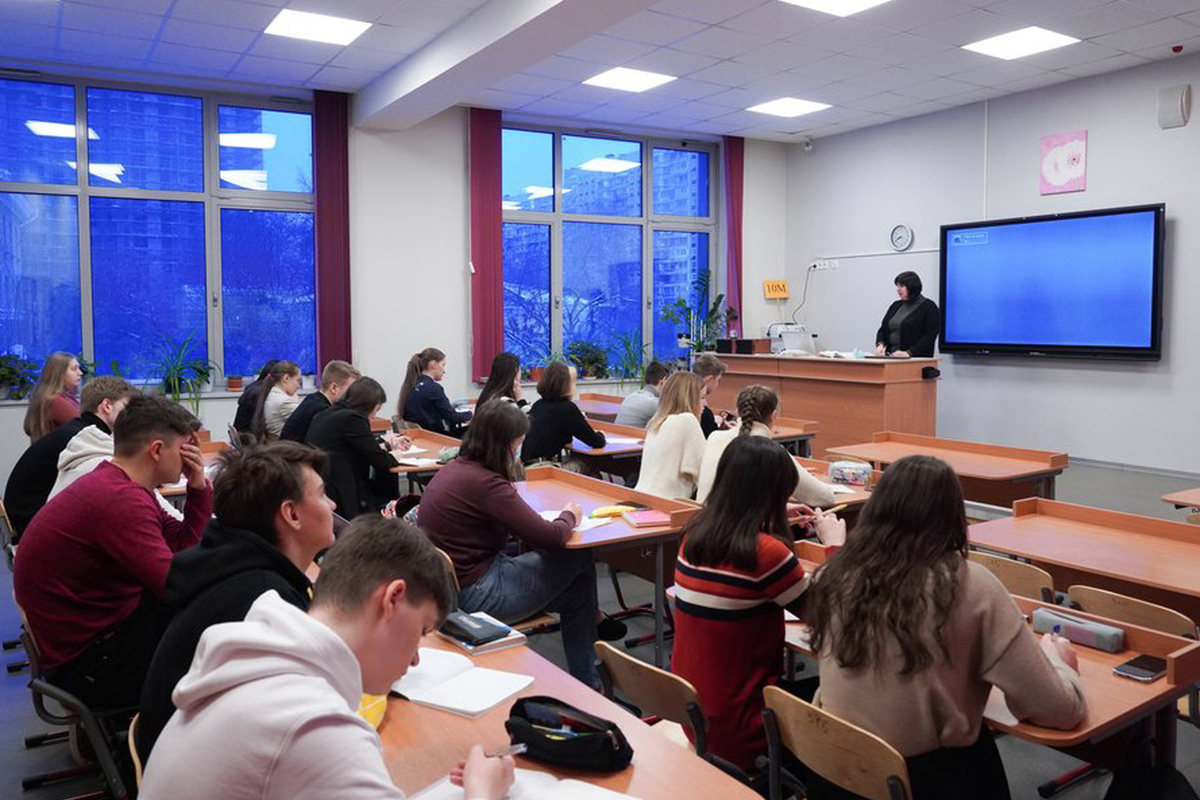Federal State Educational Standards-fear: the database of students proposed by the Ministry of Digital Development frightened parents
[ad_1]

The federal student registration system “My School” may close home education
The Ministry of Digital Development plans to extend the federal educational platform “My School” to all regions – a draft corresponding order is posted on the portal of legal acts. The platform is built on the basis of the Moscow Electronic School (MES) and assumes that each student has a “digital portfolio”. It is also supposed to link student profiles with data about their parents. And get a database of what school this or that person’s children attend. And it scared parents and experts.
The ministry’s goal is to ensure a uniform level of provision of electronic services across regions, as noted in the draft order. The database will contain students’ passport data, as well as parents’ and teachers’ identifiers – document numbers and dates of birth. It is planned to integrate information across different regions using “data showcases” for each subject.
The system will include information about students not only in schools, but also colleges, as well as additional education organizations (music schools, art schools, sports schools – and in general all institutions with an educational license). Of course, the new database must be integrated with State Services and their unified identification and authentication system (USIA).
Now the “My School” system is fully used in three regions – in Moscow (where MES operates, which served as the basis for the federal platform), Tyumen and Tatarstan. However, after the final implementation of the system, it is planned to make it mandatory for all constituent entities of the Russian Federation.
“On the one hand, MES is a convenient tool for parental control; discrepancies in terms of homework and grades are almost a thing of the past,” assesses a history teacher at one of the Moscow schools with 35 years of experience. – On the other hand, there is such bureaucratization that I do not envy colleagues from other regions.
According to MK’s interlocutor, the teacher has to conduct paper and electronic (MESH) office work simultaneously. In addition, older teachers often do not feel very confident in the digital environment. And in conditions of periodic “freezes” of the system – they happen even in Moscow – even completely computer-savvy teachers get lost.
– There is another important substantive question: when all regions are integrated into “My School,” what will happen to the original teaching methods and unique schools? Will it be mandatory to standardize them? – the teacher reasons.
As for parents, their main concern in connection with the mass implementation of “My School” is the possibility of data leakage about the composition of families and the place of education of children. “It turns out that very soon everyone interested will know how many children I have, what their names are and where exactly they are studying right now,” says Tatyana Barysheva, a mother of two children and an employee of a logistics company in the Kostroma region. – Now ordinary telegram bots give anyone information about my car for little money, but tomorrow it will be much more serious. Now I didn’t specifically enter the names and documents of the children in “State Services”; I don’t have them in my personal account. But now it seems that this will not be possible.
Of course, the state guarantees the safety of this personal data, like any other – they are protected by the relevant law. However, this does not prevent leaks – how data about children fundamentally differs from all other information (for example, medical history – it is already known to fraudulent hackers) is really unclear.
[ad_2]
Source link








